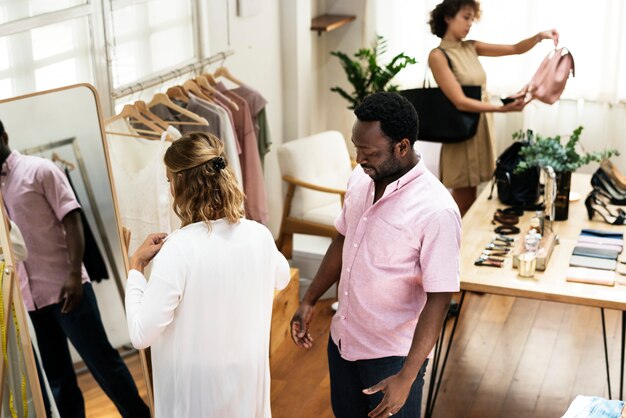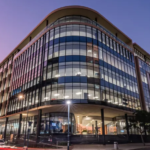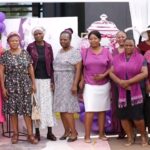The fashion and retail industry in Botswana is evolving rapidly, driven by changing consumer preferences, technological advancements, and shifting global trends. As Botswana’s entrepreneurial landscape continues to grow, understanding the latest fashion and retail trends is crucial for business owners looking to stay competitive and capture the attention of consumers. From sustainability to digital transformation, this article explores the key fashion and retail trends that Botswana entrepreneurs should be aware of to thrive in this dynamic sector.
1. Embracing Sustainability in Fashion
Sustainability is one of the most significant global trends shaping the fashion and retail industry. Consumers today are increasingly conscious of the environmental and social impact of their purchases. In Botswana, this trend is gaining traction as well, with consumers becoming more interested in eco-friendly and ethically produced clothing.
Entrepreneurs in Botswana’s fashion and retail industry can take advantage of this trend by offering sustainable products such as:
- Eco-friendly Fabrics: Clothing made from organic cotton, bamboo, hemp, and other sustainable materials is gaining popularity. Sourcing these fabrics and promoting them as environmentally friendly alternatives can help businesses appeal to eco-conscious consumers.
- Upcycled and Recycled Fashion: With the growing interest in sustainability, upcycled and recycled fashion is becoming a hit. Entrepreneurs can create or promote fashion items made from repurposed materials, offering consumers unique and sustainable options.
- Ethical Manufacturing: Businesses that prioritize fair labor practices and ensure their manufacturing processes are sustainable can build a loyal customer base that values ethical production.
By adopting sustainable practices, Botswana entrepreneurs can differentiate themselves in a crowded market, appeal to socially responsible consumers, and contribute to a greener future.
2. The Rise of E-Commerce and Digital Shopping
The global shift toward online shopping is unmistakable, and Botswana is no exception. E-commerce has become an integral part of the retail landscape, offering consumers the convenience of shopping from home and giving businesses a broader reach.
For entrepreneurs in Botswana’s fashion and retail sector, establishing a strong online presence is crucial for growth. Here’s how to leverage e-commerce effectively:
- Create a User-Friendly Website: A well-designed, easy-to-navigate website is key to providing a seamless shopping experience. Ensure your website is mobile-friendly, as many consumers in Botswana access the internet through their smartphones.
- Social Media Integration: Social media platforms like Instagram, Facebook, and TikTok are becoming essential tools for fashion brands to connect with their audience. Entrepreneurs should actively engage with consumers on these platforms, showcasing their products, sharing behind-the-scenes content, and running targeted ads to boost visibility.
- Online Marketplaces: In addition to setting up their own e-commerce websites, entrepreneurs can explore online marketplaces such as Facebook Marketplace or local platforms to reach more customers.
With a well-optimized online shopping experience, Botswana entrepreneurs can reach a wider audience and offer convenience to customers who prefer to shop digitally.
3. Personalized Shopping Experiences
Consumers in Botswana, like elsewhere, are increasingly looking for personalized experiences in both brick-and-mortar stores and online shopping platforms. Customization and individualized recommendations are becoming a significant factor in consumer decision-making.
Entrepreneurs can implement personalization strategies in various ways:
- Personalized Recommendations: Use data analytics and machine learning to provide personalized product recommendations based on customers’ browsing and purchase history. This can enhance the customer experience and increase sales.
- Custom Apparel: Offering customers the ability to personalize their clothing, such as by choosing colors, fabrics, or adding their names or logos, can create a unique and memorable shopping experience.
- Loyalty Programs: Implementing loyalty programs that reward repeat customers with personalized offers and discounts can help businesses build customer loyalty and encourage return visits.
By integrating personalization into their fashion and retail strategies, Botswana entrepreneurs can meet the growing demand for tailored shopping experiences and foster long-term customer relationships.
4. Technology and Innovation in Retail
The adoption of technology is transforming Botswana’s fashion and retail landscape. From AI-driven chatbots to augmented reality (AR) shopping experiences, technology is reshaping how consumers shop and how businesses operate.
Here are some ways Botswana entrepreneurs can integrate technology into their retail businesses:
- Artificial Intelligence (AI) and Chatbots: AI-powered chatbots can assist customers in real-time, answer queries, provide product recommendations, and streamline the shopping process. This technology enhances customer service and provides a more personalized shopping experience.
- Augmented Reality (AR) for Virtual Try-Ons: AR technology allows customers to virtually try on clothes or accessories, providing a unique and engaging shopping experience. Entrepreneurs in Botswana can explore integrating AR tools into their e-commerce platforms or physical stores to allow customers to visualize products before purchasing.
- Inventory Management Systems: Adopting advanced inventory management systems that use automation and real-time tracking can help businesses optimize stock levels, reduce waste, and ensure the availability of popular products.
By embracing innovative technologies, Botswana entrepreneurs can offer better customer experiences, streamline operations, and stay ahead of industry trends.
5. Inclusive and Diverse Fashion
Fashion today is more inclusive and diverse than ever before. Consumers are demanding fashion choices that cater to a wide range of body types, ethnicities, and gender identities. In Botswana, the need for inclusivity is also becoming more pronounced, with consumers seeking brands that reflect their diverse cultures and identities.
Entrepreneurs in Botswana’s fashion industry can tap into this trend by:
- Offering Plus-Size Clothing: The demand for plus-size clothing is growing worldwide, and Botswana is no exception. Entrepreneurs can provide a range of stylish, well-fitting options for customers of all sizes, ensuring that everyone can find fashionable pieces that suit their body types.
- Celebrating Local Culture: Integrating traditional Botswana styles and fabrics into contemporary fashion designs can appeal to consumers looking for unique, culturally inspired clothing. Entrepreneurs can highlight Botswana’s rich heritage and craftsmanship by showcasing local designs and materials.
- Gender-Neutral Fashion: Offering gender-neutral clothing options is becoming a key trend in the fashion industry. Botswana entrepreneurs can cater to this growing market by providing clothing that appeals to individuals of all gender identities.
By embracing inclusivity, entrepreneurs can cater to a broader audience, celebrate diversity, and stay in tune with global fashion trends.
6. The Growth of Local and Handmade Products
As consumers become more conscious of the environmental impact of mass-produced fashion, there is a growing demand for locally made, unique, and handmade products. Entrepreneurs in Botswana can capitalize on this trend by offering locally crafted fashion and accessories, including:
- Handmade Jewelry and Accessories: Botswana is home to talented artisans who create beautiful handmade jewelry and accessories. Entrepreneurs can collaborate with local artists to offer these unique pieces to customers who value craftsmanship and authenticity.
- Locally Sourced Fabrics: Utilizing locally sourced materials to create fashion items can appeal to consumers who prioritize supporting local businesses and reducing their carbon footprint.
Offering locally made products not only supports Botswana’s economy but also caters to consumers who appreciate quality, uniqueness, and the story behind the products they buy.
7. Experiential Retail and Pop-Up Shops
Experiential retail is becoming increasingly popular as consumers seek more than just a transactional shopping experience. Entrepreneurs in Botswana can enhance their retail offerings by creating memorable experiences that engage customers and build brand loyalty. Some ideas for incorporating experiential retail include:
- Pop-Up Shops: Hosting temporary pop-up stores or events can generate excitement and attract new customers. Pop-up shops can showcase limited-edition collections, seasonal products, or new designs, creating a sense of urgency and exclusivity.
- In-Store Events: Organizing events such as fashion shows, product launches, or collaborations with local influencers can create buzz and encourage foot traffic to physical stores.
- Interactive In-Store Displays: Incorporating technology such as interactive screens or AR features into brick-and-mortar stores can create an engaging and immersive shopping experience.
By offering unique and memorable experiences, Botswana entrepreneurs can foster deeper connections with their customers and build stronger brand loyalty.
The fashion and retail landscape in Botswana is evolving rapidly, driven by global trends and technological innovations. Entrepreneurs in the sector must stay ahead of the curve by embracing sustainability, leveraging digital technologies, offering personalized experiences, and tapping into local culture. By understanding these emerging trends and adapting their strategies accordingly, Botswana entrepreneurs can create competitive businesses that resonate with today’s fashion-conscious, tech-savvy consumers.






